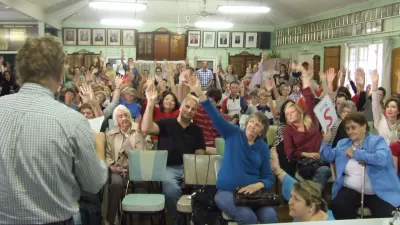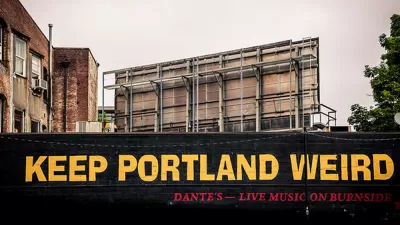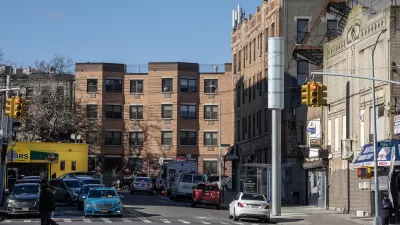A new satirical essay for McSweeney's provides a template for NIMBY opposition to planning and development, and does not pull any punches in the process.

In the most scathing, protracted satires of planning and development controversies this reader can recall, Chas Gillespie writes a speech imagined for "every NIMBY" at a public hearing.
The irony is laid on thick at every possible moment, such as the aperture:
Friends, neighbors, it’s good to see all of you. I know you, you know me, and just seeing all of your faces at this city council meeting reminds me why I love living in this town. Because I feel comforted by stasis and regularity, both fed by ignorance, and which combine to perpetuate injustice.
Gillespie also deals in absurdity, such as the imagined speech deliverer's list of cautionary tales:
Now that we’ve heard from all the members of the city council tonight, I think we as citizens need to make a few things clear. The first is, we aren’t Madison. We aren’t Boulder. We aren’t Terre Haute. So when I hear a member of the council saying, “Well, Waukesha made a few small but substantive changes in such-and-such an area and the results have been very promising empirically,” what that council member fails to understand is that we aren’t Waukesha. We aren’t Tacoma. We aren’t Amherst. We aren’t Portland, Maine. Are we Scottsdale? No, we are not. And so all this so-called “evidence” about how policies have worked in other towns simply does not apply to us. No evidence applies to us.
There's a lot more, and the essay will provide many planners, YIMBY or not, some commiserating effect in having encountered similar versions of the template laid out here on many occasions at public hearings. All of that irony and absurdity does highlights facts well known: that public hearings are dominated by populations males, far older, whiter, and more likely to own property that the general public.
As related to the source, this isn't the first time McSweeney's, a home for satire of all kinds with all kinds of targets, has fixed its barbs on NIMBYs. In October 2018, Michael Ward and David Rosow came up with a list of acronyms for suggested alternatives between NIMBY and YIMBY.
FULL STORY: EVERY NIMBY’S SPEECH AT A PUBLIC HEARING

Maui's Vacation Rental Debate Turns Ugly
Verbal attacks, misinformation campaigns and fistfights plague a high-stakes debate to convert thousands of vacation rentals into long-term housing.

Planetizen Federal Action Tracker
A weekly monitor of how Trump’s orders and actions are impacting planners and planning in America.

In Urban Planning, AI Prompting Could be the New Design Thinking
Creativity has long been key to great urban design. What if we see AI as our new creative partner?

Pedestrian Deaths Drop, Remain Twice as High as in 2009
Fatalities declined by 4 percent in 2024, but the U.S. is still nowhere close to ‘Vision Zero.’

King County Supportive Housing Program Offers Hope for Unhoused Residents
The county is taking a ‘Housing First’ approach that prioritizes getting people into housing, then offering wraparound supportive services.

Researchers Use AI to Get Clearer Picture of US Housing
Analysts are using artificial intelligence to supercharge their research by allowing them to comb through data faster. Though these AI tools can be error prone, they save time and housing researchers are optimistic about the future.
Urban Design for Planners 1: Software Tools
This six-course series explores essential urban design concepts using open source software and equips planners with the tools they need to participate fully in the urban design process.
Planning for Universal Design
Learn the tools for implementing Universal Design in planning regulations.
planning NEXT
Appalachian Highlands Housing Partners
Mpact (founded as Rail~Volution)
City of Camden Redevelopment Agency
City of Astoria
City of Portland
City of Laramie





























